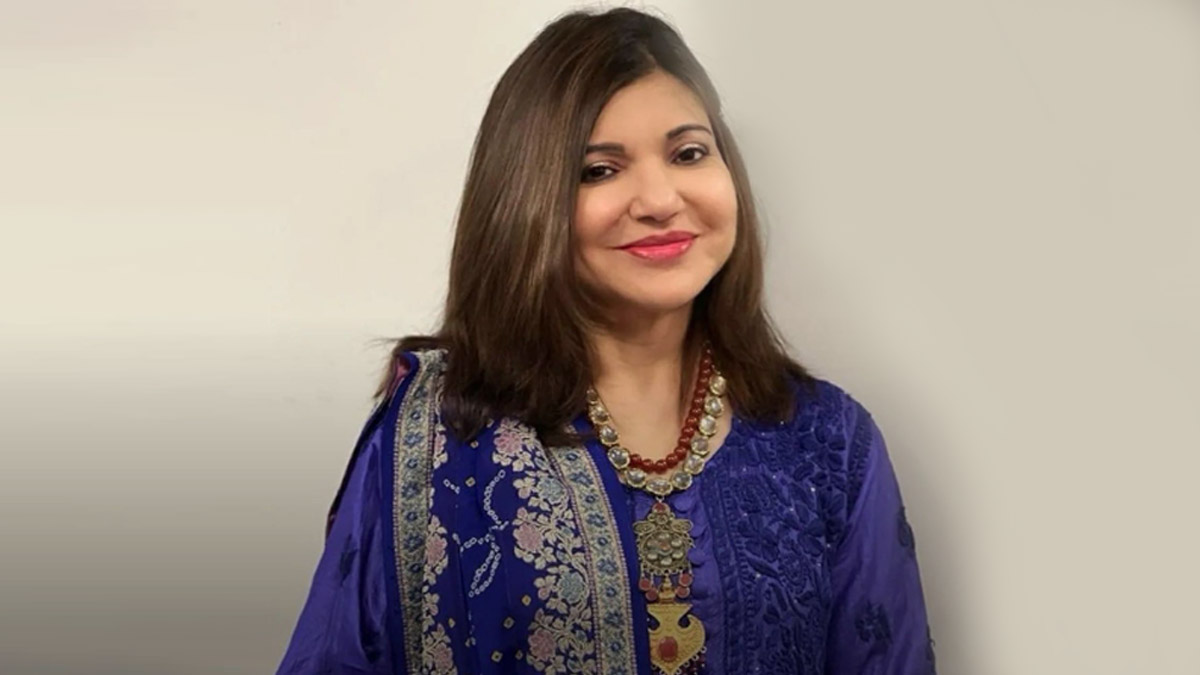
Bollywood singer Alka Yagnik took to Instagram revealing that she has been diagnosed with a rare sensorineural nerve hearing loss caused by a sudden viral attack. In a lengthy post on Monday, she explained her recent absence and requested support and understanding from her fans.
Table of Content:-
“To all my fans, friends, followers and well-wishers. A few weeks ago, as I walked out of a flight, I suddenly felt I was not able to hear anything. Having mustered some courage in the weeks following the episode, I want to break my silence now for all my friends and well-wishers who have been asking me why I’m missing in action. It has been diagnosed by my docs as a rare sensorineural nerve hearing loss, due to a viral attack…this sudden, major setback has caught me completely unaware,” Yagnik said in the Instagram post.
She also warned her fans and colleagues regarding loud music. “For my fans and young colleagues, I would add a word of caution regarding exposure to very loud music and headphones,” she said.
View this post on Instagram
To understand what this condition is, the OnlyMyHealth team spoke to Dr Amit Kumar Sharma, Senior Consultant, Ear, Nose, and Throat Specialist, Artemis Hospital, Gurugram.
What Is Sensorineural Hearing Loss
Defining the condition, Dr Sharma said, “Sensorineural hearing loss (SNHL) is a type of hearing impairment resulting from damage to the inner ear (cochlea) or the nerve pathways from the inner ear to the brain. This condition is in contrast to the conductive hearing loss, which involves problems with the ear canal, eardrum, or middle ear.”
Also read: Meningitis And Hearing Loss: Expert Explains The Connection And How To Prevent It
Causes

According to Dr Sharma, there are several factors that can lead to SNHL. Here are some of the causes listed by him.
1. Aging (Presbycusis): Natural degeneration of the inner ear structures happens as people age.
2. Noise Exposure: Prolonged exposure to loud noises, which can damage the hair cells in the cochlea.
3. Genetics: Inherited conditions can make individuals prone to SNHL.
4. Illnesses: Infections like meningitis, mumps, or measles, and conditions like Meniere's disease are also responsible for causing this problem.
5. Ototoxic Medications: Certain drugs, such as some antibiotics and chemotherapy agents, can be toxic to the inner ear.
6. Trauma: Head injuries or sudden changes in pressure can result in this problem.
7. Tumors: Acoustic neuromas, benign tumors on the auditory nerve, can impair hearing.
Symptoms
The primary symptom of SNHL is a gradual or sudden decrease in the ability to hear. Apart from this, people are also likely to experience:
- Difficulty understanding speech, especially in noisy environments.
- Tinnitus, or ringing in the ears.
- Dizziness or balance issues, although it's not very common.

Impact on Daily Life
SNHL can significantly impact the affected person's quality of life, leading to:
- Communication Challenges: Difficulty in conversations, especially in noisy settings.
- Social Isolation: Withdrawal from social interactions due to embarrassment or frustration.
- Cognitive Decline: Increased risk of cognitive impairments due to reduced auditory stimulation.
Also read: Types Of Hearing Loss And Why You Should Care
Treatment Options
Although SNHL is often permanent, there are several treatment options that can help in managing the condition.
Dr Sharma said, “These patients require oral steroids as their treatment and if required we have to give them intratympanic steroid injections, we might have to give them antivirals and some nav tonics.”
Adding further, he said, “You can avoid the nav tonics part but steroids, oral intratympanic steroids and in some cases antivirals are required. Secondly if that also doesn't work then we might have to take hyperbaric oxygen.”

Prevention and Management
“Preventing SNHL involves protecting the ears from excessive noise and avoiding ototoxic medications when possible. Regular hearing check-ups can detect early signs of hearing loss, allowing for timely intervention,” advised Dr Sharma.
Here are some strategies recommended by Dr Sharma to manage the condition for those living with SNHL.
- Spreading Awareness: Ensuring that the affected individual's social circle understands the condition and communicates effectively.
- Adopting Communication Strategies: Using visual cues, maintaining eye contact, and minimizing background noise during conversations.
- Utilizing Technology: Embracing modern hearing aids and assistive devices to improve hearing and communication.
Sensorineural hearing loss is a complex and multifaceted condition that can significantly impact the life of those affected. Awareness and understanding of its causes, symptoms, and treatments are essential for managing the condition effectively. For public figures like Alka Yagnik, raising awareness about SNHL can significantly help in reducing stigma and encourage others to seek the help they need.
Also watch this video
How we keep this article up to date:
We work with experts and keep a close eye on the latest in health and wellness. Whenever there is a new research or helpful information, we update our articles with accurate and useful advice.
Current Version
